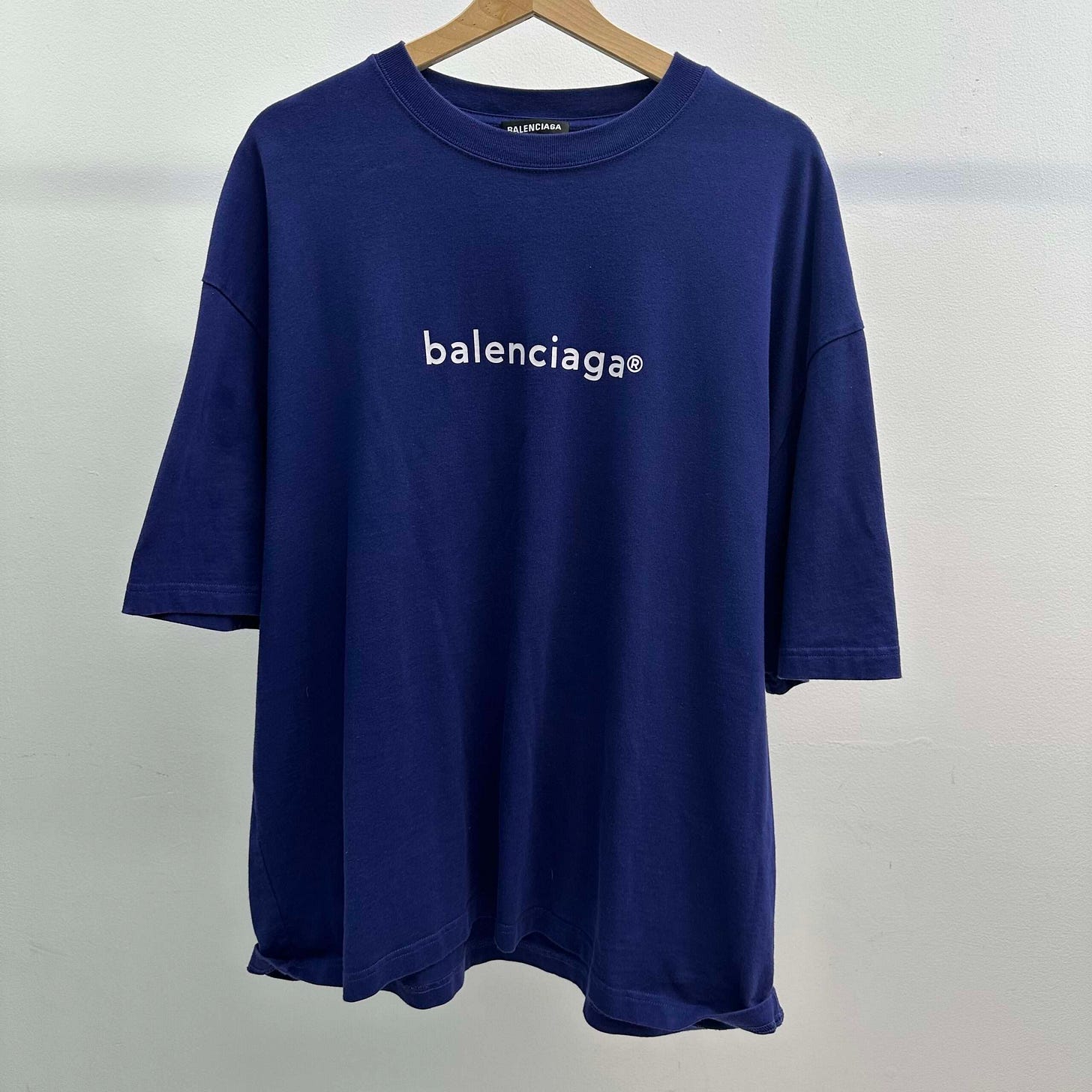The inspiration for this post came from something
wrote last week about a blank-fronted shop she discovered in her hometown of Miami. It wasn’t until she stepped inside that she learned that the business calls itself Veblen:Turns out the name, Veblen (which is only on the tags; the store has no signage indoors or out) comes from American economist Thorstein Veblen and refers to goods where demand increases with increased price, contradicting “demand theory.”
Now, “Veblen” is a curious — audacious? cynical? oblivious? — name for a boutique selling used clothing and accessories from high-end brands, so naturally Mrs. Solomon had my attention. (The shop has a website, but it doesn’t include a story about the business name.) Truth be told, though, the HMS post was just the match that lit the kindling. I’ve been interested in Thorstein Veblen, Veblen goods, and Veblen effects for a long time, and I’d been primed very recently by Evan Osnos’s article in the January 29 New Yorker about status and elites1.

Born in Wisconsin in 1857, Thorstein Veblen was the sixth of twelve children of Norwegian immigrant parents; his first name means “Thor’s stone.” He became an economist, sociologist, philosopher, and critic of capitalism who attacked “production for profit.”2 He did not, however, coin the term “Veblen goods”; that eponym was concocted at some later time.3 Veblen goods are economic paradoxes: Usually demand increases when price decreases, but Veblen goods become more desirable when their price goes up. (See also: snob effect, an actual proposition in economics. Are you beginning to suspect that economics is more craft than science?)
There also are Veblen services. Here’s how the Michigan Journal of Economics puts it:
For instance, if someone is looking to hire a lawyer, they want to choose the best possible person. If given two options, one who charges $50 an hour and another who charges $1,000 an hour, it seems like the $1,000 lawyer must be worth their price. Major corporations are likely to hire who they think is best, so the demand for that lawyer is higher. In reality, the $50 lawyer could be just as good, but the lower price makes them appear as the “worse” or budget alternative.

Veblen did, however, coin “leisure class.” In a 2019 essay titled “The Man Who Saw Trump Coming a Century Ago,” the author and independent scholar Ann Jones noted that Veblen defined “leisure class” with care. He wrote:
The term ‘leisure,’ as here used, does not connote indolence or quiescence. What it connotes is non-productive consumption of time. Time is consumed non-productively (1) from a sense of the unworthiness of productive work, and (2) as an evidence of pecuniary ability to afford a life of idleness.
I’ll repeat that in case you missed it: the unworthiness of productive work.
The other famous term that Veblen coined, and which you’ve almost certainly heard of, is “conspicuous consumption”: “the purchase of goods or services for the specific purpose of displaying one's wealth” (Investopedia). “Veblen effects” arise “from the desire to achieve social status by signaling wealth through conspicuous consumption” (American Economic Review, 1996). In Veblen’s time, emblems of conspicuous consumption included “the giving of valuable presents and expensive feasts and entertainments” and women’s “excessively long hair” hidden underneath elaborate hats. In 2024 it might entail wearing a $50,000 watch that keeps time no better than a $25 one (or a smartphone). Or, to cite an example from the Veblen of Miami website, it may involve paying $180 for a used T-shirt from the designer Balenciaga. The fact that it’s a used $180 Balenciaga T-shirt — new ones go for $690 and up — may also signal a certain kind of conspicuous virtue. (The fact that the store has no exterior signage, on the other hand, may be a form of inconspicuous nonconsumption.)

Is Veblen of Miami the first and only business to appropriate Thorstein’s surname? Surprisingly, to me anyway, it is not. A company called Veblenist, which obtained trademark protection for that business name in 2018,, sells replacement straps for watches. (Perhaps even for $50,000 watches.) Its tagline is “Committed to a better wristgame [sic].” Did you know you had a wristgame? Now you do.
Veblen, you will not be surprised to learn, was a socialist.
I originally wrote about Veblen goods back in 2010, when my inspiration was a Harper’s magazine article by Clancy Martin, a former jeweler. “The fact that people buy jewelry specifically to display their wealth,” Martin wrote, “can make the salesman start to feel, somewhere, that his customers deserve to be ripped off.”
Here’s one more piece of Vebleniana.
Veblen’s academic career was peripatetic, and for a time he taught at Stanford University. He lived his final years in a house in Menlo Park, California, near the Stanford campus. The “two-story redwood shanty,” at 2006 Sand Hill Road, was sold in 2004 for $1,115,000 to developers who planned to demolish it.
In Veblen’s time Sand Hill Road had actual sand hills. Today it is the “epicenter of venture capital” in Silicon Valley.
New York Times reporter Patricia Leigh Brown wrote in 2004 about the house sale:
The impending demolition "couldn't be more apt," said Sidney Plotkin, a professor of political science at Vassar and president of the International Thorstein Veblen Association, a scholarly group whose mission includes analyzing the implications of Veblen's work for the contemporary political economy.
"It would put a wry smile on his face," Professor Plotkin added. "He understood that real estate was an exercise in inflated values that could vanish in a split second."
The New Yorker elitely spells it with an acute accent: “élites.”
Every biography I consulted also made a point of calling out Veblen’s notorious “womanizing.” Why, I wonder, is there no “manizing” counterpart?
I couldn’t find “Veblen goods” in the standard English-language dictionaries I consulted, so I can’t tell you exactly when the term first appeared. Maybe someone with sharper research skills than mine will fill in the blank.




Thanks for the memory. I've had no occasion to encounter "Veblen goods" since 4th or 5th semester of Econ. It was a very long time ago.
Oh this is so great Nancy. Man I feel like I've found my people!